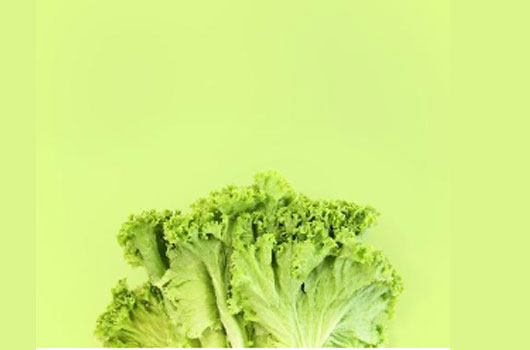Can 40 Days Really Change Your Health Forever? Why Lent is the Perfect Time to Build Lasting Habits
For many, Lent is about ‘giving something up.’ But what if, instead of seeing it as a temporary sacrifice, you used these 40 days to create a healthy habit that lasts a lifetime?

But here’s the thing: how we frame a change makes all the difference.
Why ‘Giving Up’ Doesn’t Work
If you tell yourself, “I’m giving up chocolate” or “I can’t have biscuits,” what happens? Your brain immediately resists. It feels like deprivation, like something is being taken away from you.
This is why so many people struggle with all-or-nothing thinking when it comes to health. If a habit feels like a punishment, it won’t last.
Instead, let’s flip the narrative. Rather than focusing on what you’re giving up, focus on what you’re gaining.
✅ The Power of Reframing
- Instead of “I’m cutting out sugar in my tea,” think “I’m drinking tea that won’t cause a blood sugar spike.”
- Instead of “I’m not having biscuits at work,” think “I’m keeping my energy steady all afternoon.”
- Instead of “I’m giving up evening chocolate,” try “I’m unwinding with a herbal tea after dinner.”
This subtle shift in language and mindset makes new habits feel empowering, rather than restrictive.
The Science of Habit Formation
According to BJ Fogg (Tiny Habits) and James Clear (Atomic Habits), the key to long-lasting behaviour change is:
✔️ Starting small – Tiny changes stick better than big, overwhelming goals.
✔️ Attaching new habits to existing routines – If you already drink tea, switching to herbal after dinner is easier than quitting chocolate cold turkey.
✔️ Making habits feel easy, not forced – Willpower alone won’t cut it; habits should fit seamlessly into your life.
I’ve used this exact approach myself:
✅ No biscuits or cake at work – Stopped mindless snacking without feeling deprived.
✅ Herbal tea after meals – Became a ritual that replaced my post-dinner chocolate habit.
✅ Wine only at weekends – A small shift that felt sustainable rather than restrictive.
✅ Stopped smoking – One of my biggest health transformations, made possible by focusing on what I was gaining rather than losing.
But for a habit to truly stick, we need to go deeper.
Why We Struggle: Understanding Neurological Levels
Sometimes, it’s not the habit itself that’s the problem—it’s the environment, beliefs, or identity that drive it.
Using Neurological Levels, a powerful coaching tool, we can identify where a habit is rooted:
1️⃣ Environment: Is your workplace full of biscuit-lovers? Do your evenings revolve around wine with friends? Are you surrounded by people who have a ‘victim mentality’ when it comes to health? Our surroundings shape our behaviours more than we realise.
2️⃣ Behaviours: What are the small, automatic actions leading to the habit? Grabbing a biscuit during a tea break? Ordering a glass of wine out of routine?
3️⃣ Capabilities: Do you have the right tools to make a better choice? Do you know why your energy crashes at 3 pm, or why you crave sugar after dinner?
4️⃣ Beliefs & Values: Do you believe you’re ‘someone who just loves sugar’ or ‘not a morning person’? These beliefs can lock us into patterns that don’t serve us.
5️⃣ Identity: If you see yourself as ‘someone who always struggles with consistency,’ it’s much harder to sustain change. The goal is to shift identity—to become the kind of person who naturally makes healthier choices.
This is why habit change isn’t just about the practical steps—it’s about understanding what’s underneath.
Coaching + Nutrition: A Complete Approach to Lasting Change
Most health advice focuses purely on what to do—but not why we struggle to do it.
This is where I take a different approach.
✔️ I combine coaching techniques with the latest nutritional and health research to help clients create real, lasting change.
✔️ I help unpack the blocks—whether it’s environment, mindset, or old habits—that make consistency difficult.
✔️ And most importantly, I partner with my clients so that health doesn’t feel like a chore—it becomes automatic, effortless, and natural.
✨ What Small Shift Could You Make?
The beauty of Lent is that it gives you a structured timeframe to test a new habit. You don’t have to commit to a lifetime change overnight—you’re just trying something for 40 days. But what if, at the end of those 40 days, it felt so natural that you wanted to keep going?
Think small: What’s one tiny shift you could make that feels effortless?
Here are some ideas:
- Swapping your afternoon coffee for a decaf or herbal tea to improve sleep.
- Adding a five-minute morning stretch to help with energy and mobility.
- Eating your meals more mindfully instead of scrolling through your phone.
- Taking a short walk at lunchtime instead of working through the break.
The key is not just starting a habit, but making it stick.
What small habit are you committing to this Lent? Let me know in the comments!
#HealthyHabits #HealthMadeSimple #EffortlessWellbeing #Lent #SustainableHealth
This version deepens the article with the Neurological Levels framework and highlights how your coaching + nutrition approach is uniquely positioned to help people create real, lasting change.
How does this feel? Let me know if you want any more refinements!







